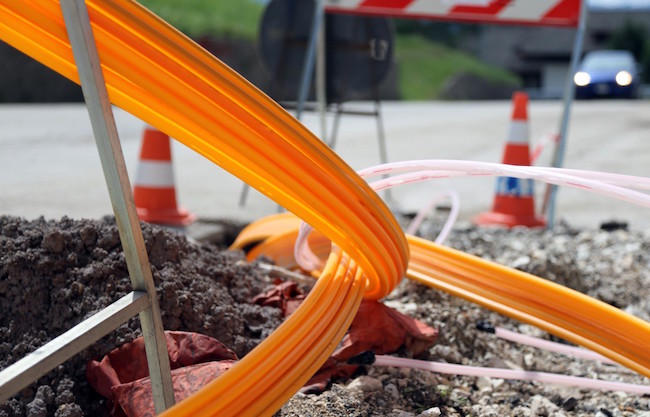
Trudeau pledges $1.75B to build high speed internet infrastructure in remote areas
By The Canadian Press
Infrastructure
Fibre optic cable being installed as part of an infrastructure project. PHOTO: Adobe Stock/ChiccoDodiFC
OTTAWA—Prime Minister Justin Trudeau says the government is launching a $1.75-billion fund to expand high-speed internet to Canadians in rural and remote communities.
Trudeau says the Universal Broadband Fund will see 98 per cent of Canadians connected to high-speed internet by 2026 — crucial in an era when virtual communication is an essential part of daily life.
“Good reliable internet isn’t a luxury, it’s a basic service,” Trudeau said Nov. 9 at a news conference in Ottawa.
“We’re all going online to stay in touch with family and friends. Now more than ever a video chat cutting out during a meeting or a connection that’s too slow to upload a school assignment, that’s not just a hassle, that’s a barrier.”
The program, announced originally in the Liberal government’s 2019 budget as a $1-billion fund, includes $750 million of added cash to advance projects with partners such as the federal infrastructure financing agency.
The added funding includes $150 million for streamlined projects, as well as a $600-million deal with Ottawa-based satellite company Telesat to link up particularly remote communities with high-speed broadband via satellite.
The Liberals created the Canada Infrastructure Bank in 2017 to entice funding from private-sector partners to fuel what the government has called “transformational” infrastructure projects that would create 60,000 jobs.
However, the bank has been criticized for its relatively small number of investments in fewer than a dozen projects so far and both the Conservatives and NDP promised in the 2019 election to abolish the bank if they were voted into power.
Residents of some communities in the North have faced bracingly high internet fees. But competition among service providers would “enable the price points to go down,” Innovation Minister Navdeep Bains said Monday.




